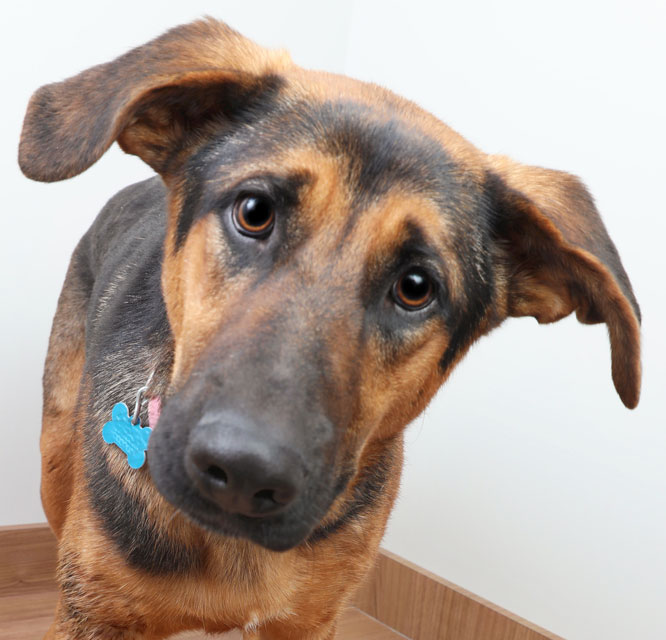Irritable Bowel Syndrome in Dogs

Irritable bowel syndrome (IBS) in dogs is a psychosomatic condition caused by stress and anxiety. It causes intermittent mucous, watery diarrhea, and is often confused with inflammatory bowel disease (IBD), which has a physical cause.
What Are the Signs of IBS in Dogs?
IBS in dogs results in large bowel diarrhea. The signs include:
- Gooey diarrhea
- Increased urgency to pass stool
- Intermittent signs
- Straining to pass stool
IBS doesn't generally cause blood in the diarrhea. If there's blood, it indicates inflammation and a physical cause for the condition.
Diagnosis of IBS in Dogs
The diagnosis of canine IBS is one of exclusion. In other words, when all the physical causes of large bowel diarrhea have been ruled out through lab testing, a diagnosis of IBS is made. There is no specific test for it since it's not a physical ailment.
Treatment of Canine IBS
The treatment of IBS in dogs is the treatment of anxiety. If possible, identify the source of anxiety for your dog, which can be tricky sometimes. After all, it could be one of an almost endless list of things, and dogs process situations differently than we do. Here are just a few of the things that can cause a dog anxiety:
- Changes in schedule of the caregivers.
- Remodeling or construction in the home.
- New pet or person in the house.
- Pet or person in the house leaving or dying.
- Storms.
- Bullying behavior by a person or pet in the home.
- Not enough exercise.
- Boredom.
If you can identify a source or sources of anxiety for your dog, do your best to eliminate or mitigate it. Of course, if it's a new person or pet in the home or one leaving, there won't be a way to eliminate that particular stressor. Instead, implement as many anxiety-releasing techniques as you can. Here are some ideas:
- Use an Adaptil diffuser. They release a compound meant to mimic a pheromone released by mother dogs to calm them. They can be effective in helping dogs calm down.
- Use Rescue Remedy. It helps calm some dogs.
- Increase exercise. The hormones released during physical activity fight anxiety.
Some dogs may require anti-anxiety medication, either short or long-term. These all come with some potential side effects, so be sure you understand what to watch out for and give the medications as directed. Do not give your dog any human medications without first checking with your veterinarian. Some medications are highly toxic to dogs.
Anti-diarrheal medications may help during a bout. Also, a bland diet, possibly half-and-half boiled lean burger and rice, may also help resolve the signs faster. Check with your veterinarian for specific recommendations.
If your dog's diarrhea is associated with vomiting, inappetence, or lethargy, talk to your vet right away, as something else is likely to be going on.
You May Also Like These Articles:
IBD: Inflammatory Bowel Disease in Dogs
Regurgitation vs. Vomiting in Dogs
Hemorrhagic Gastroenteritis: HGE in Dogs
Disclaimer: This website is not intended to replace professional consultation, diagnosis, or treatment by a licensed veterinarian. If you require any veterinary related advice, contact your veterinarian promptly. Information at DogHealth.com is exclusively of a general reference nature. Do not disregard veterinary advice or delay treatment as a result of accessing information at this site. Just Answer is an external service not affiliated with DogHealth.com.
Notice: Ask-a-Vet is an affiliated service for those who wish to speak with a veterinary professional about their pet's specific condition. Initially, a bot will ask questions to determine the general nature of your concern. Then, you will be transferred to a human. There is a charge for the service if you choose to connect to a veterinarian. Ask-a-Vet is not manned by the staff or owners of DogHealth.com, and the advice given should not delay or replace a visit to your veterinarian.



